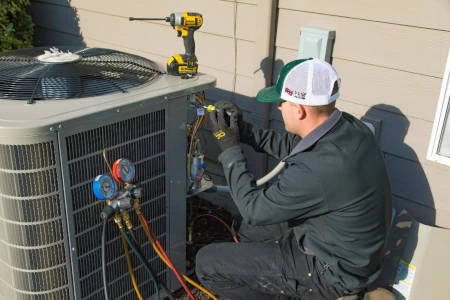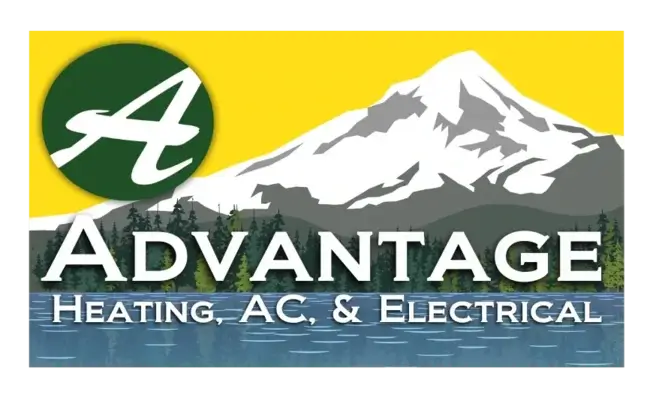How Much Does AC Cost?
If you lived in the Pacific Northwest in the last couple of years, you’ve probably lived through a handful of severe heatwaves now. As recently as 2018, it was reported that 30% of single-family residences in Oregon do not have Air Conditioning.
AC is an already fantastic convenience during a typical summer. In events like a heatwave, however, not having AC could mean depending on cooling centers or being at risk for your health. Therefore, being educated when it comes time to add AC to your home is incredibly important. So, you might wonder, “How much does AC cost?”
In our market, Oregon and the Pacific Northwest, you could find that installing AC could cost somewhere between $5000 to $8000. Several variables affect this cost and you should keep each of them in mind.
What Affects The Cost Of Air Conditioning?
Below are just a handful of factors that could affect the price of your new AC unit.
1. Compatibility
Does the system work with the existing furnace, or will a whole new furnace need to be installed?
Quality of Contractor – Is that company installing the AC Unit Function-Based or Performance-Based?
2. Wiring
Does the installing company need to hire an electrician or install high voltage wiring?
3. Thermostat
Does the existing thermostat work with the new AC unit?
4. Clearance
Is it possible to install the AC unit in the existing structure without a code violation?
5. Windows
What size of windows do you have in your house and which direction do they face?
More variables could impact the cost, but these are some of the most common issues that you could run into when installing your new AC unit. What this means is that you must get an accurate quote. That quote can also impact the long-term cost of operating your AC.
Your sales rep should do a load calculation and look at the overall performance of the HVAC system. This should ensure that you get an AC that is sufficient for your home and have the most efficient energy usage. So keep the quality of the contractor in mind when you work with them.
What’s The Difference Between Function And Performance?
HVAC companies are not all built the same. There are two broad categories that most companies can fall under: Function-Based and Performance-Based.
Function-Based
A Function-Based company is primarily concerned with the function of the unit or part they are contracted to install. They’ll make sure it gets installed and that it turns on and functions, then send you the invoice. This could lead to issues developing down the line. Without a load calculation, the system may not meet the needs of your home.
It’s also likely the system will not be optimal for the way you use it. This means it will have inefficient energy usage, and that translates to a more expensive energy bill. If the system is inefficient, that could also mean it will develop wear and tear more quickly, resulting in you needing to pay for repairs or even a replacement well before you should need to.
Performance-Based
To avoid all that, you would need to hire a company that falls under the other category. A Performance-Based company looks at the entire HVAC system and uses a holistic approach. This would include a load calculation, checking for clearance and code violations, and ensuring that your furnace, AC, and thermostat are the optimal fit for each other.
They may also offer programs and services to maintain and check the system regularly to ensure it has the longest lifespan possible. If this sounds more involved than the Function-Based company, that’s because it is. Typically, that means they charge more, but it could mean saving money and headache in the long term.
Do I Need To Pay For A High-Quality Air Conditioner?
It’s better to spend $8000 once in 20 years than it is to spend $5000 twice in that same time frame. Recent studies have shown that around one-third of air conditioners in the United States will develop problems within the first 8 years of operation. To avoid that, you need to have an AC unit that is both reliable and efficient.
Purchasing a unit from a reputable brand with a history of making good quality AC systems is important for this reason. Still, it isn’t the only factor that will have a significant impact on the cost, performance, and longevity of your AC. Being fully educated as a consumer will help prevent having to pay for frequent repairs or even a full replacement before it should be necessary.
What Are Common Issues With AC Units?
Airflow and refrigeration are some of the most common issues found in AC units installed in North America. Around 70% of systems in the United States have a problem with either or both elements.
Airflow
A contractor could design and install a system that is inefficient and has too much resistance for the amount of airflow it creates. Most AC units in the United States are costing consumers 20% to 30% more than what they should pay in terms of power usage. That’s because the system has to work overtime to compensate for poor quality parts, poor craftsmanship, or inefficient design.

Refrigeration
Poor quality parts of craftsmanship can influence how well the refrigeration in the AC unit cools the air being pumped into your home. As mentioned earlier, most major manufacturers of Air Conditioners work the same. So this comes down to the company installing and maintaining the unit.
Who Are Advantage Heating & Air Conditioning, LLC?
We are your local HVAC Experts out of Salem, Oregon. We hope that gave you the information you need to make an educated decision when purchasing your new Air Conditioning unit. If you have other questions about HVAC systems, check out our other blogs. To learn more about who we are and how we can help you, visit our website and follow us on social media – we’re here when you need us!







